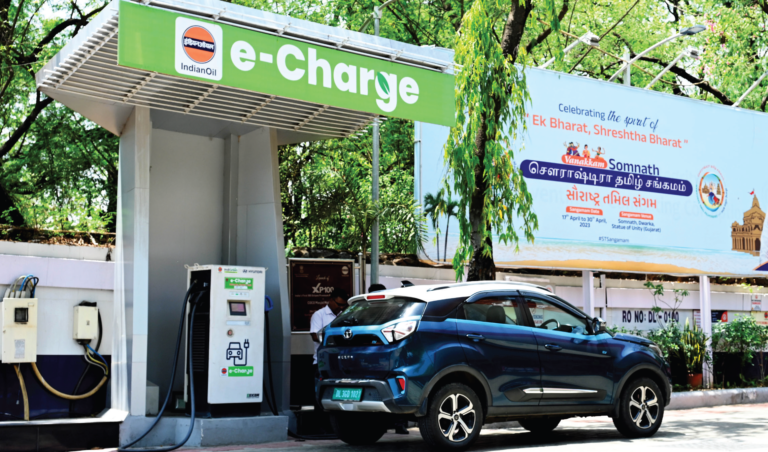By : Mr. Akshit Bansal, Founder & CEO Statiq (The story is provided by the author as an original and unpublished article, authored exclusively for CSR

Discussions surrounding climate change have taken center stage in global discourse recently, particularly in light of the severe repercussions of global warming that are now being felt worldwide. From devastating flash floods and landslides to record[1]breaking heatwaves, the urgency of addressing climate change has never been more apparent. Amidst the dialogues, the transition from fossil fuels to renewable energy sources stands out as one of the most practical solutions to combat climate change, and this transition is evident in various innovative developments. Over the past decade, there has been a significant surge in the adoption of electric vehicles (EVs), with numerous brands entering this burgeoning market. While the Western world has taken the lead in terms of the size of the EV market, countries like India are swiftly catching up. In 2022, the Indian EV market was valued at $3.21 billion, and forecasts predict that it will reach an impressive $114 billion by 2029. This remarkable growth is expected to trigger further investments, particularly in the expansion of EV charging infrastructure and related services EVs accelerating climate change mitigation Unlike fossil fuels, which still power the majority of vehicles on highways, electricity serves as a cleaner energy source, emitting minimal gases as no fuel is burned. Even in nations where electricity generation relies heavily on coal, electric vehicles (EVs) produce significantly lower emissions than their gasoline and diesel counterparts, especially when considering their entire lifespan. When batteries are manufactured using clean energy sources, emissions are further reduced. Notably, fully electric vehicles lack tailpipes and emit no exhaust, making them not only efficient but also environmentally friendly.
On average, electric vehicles emit three times fewer emissions than gasoline, diesel, and kerosene[1]powered vehicles. In a report released by the U.S. Department of Energy in 2021, it was revealed that vehicles contribute a staggering 1.5 billion metric tonnes of greenhouse gases annually. This alarming statistic not only leads to extensive environmental pollution but also contributes to the depletion of the ozone layer, ultimately fueling climate change. The report emphasizes that transitioning a significant portion of the world’s 1.446 billion cars to renewable energy sources would result in a substantial reduction of greenhouse gas emissions. Carbon emissions stemming from the combustion of gasoline and diesel in vehicles are released into the atmosphere as greenhouse gases, trapping heat from the sun near Earth’s surface. This leads to heightened temperatures, subsequently resulting in various adverse weather phenomena, including increased evaporation, heatwaves, wildfires, and excessive rainfall leading to flooding. Electric vehicles, on the other hand, do not release carbon during operation. However, it is crucial to ensure that the entire process of EV production, from battery manufacturing to electricity generation, relies on clean energy sources to achieve a net-zero carbon footprint. The shift towards electric vehicles is gaining momentum, with EVs constituting a notable 13% of all car sales in 2022. Countries such as France, along with other members of the European Union, have set a clear target: by 2025, the sale of internal combustion engine (ICE) cars will come to an end. In India, a remarkable surge in EV registrations is evident, especially among millennials and Generation Z individuals who have seen a rise in disposable income. The number of EV registrations in the country soared from approximately 330,000 units in 2021 to an impressive 1.02 million units in 2022. Even more promising, between January and March of 2023, as reported by data from the Road Transport and Highways Ministry, India had already registered an additional 278,000 EVs. Forging an integrated vision At the heart of the electric vehicle (EV) ecosystem lies a dynamic ensemble of essential contributors. It all begins with the visionaries and pioneers who conceptualize and perfect the technology. Following suit are the manufacturers and suppliers responsible for pivotal components, such as batteries. Additionally, the EV charging sector plays a pivotal role in ensuring seamless mobility for EV owners across different locations. Collectively, these stakeholders are shaping an ecosystem that not only promotes human safety but also ensures the security of the present and forthcoming generations.